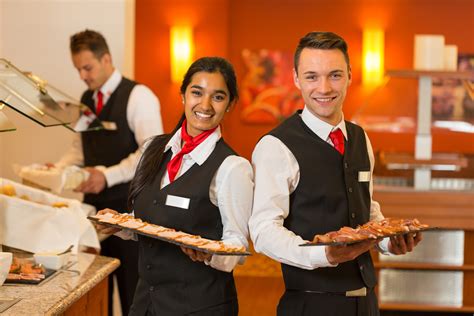Food and Beverage Management in Hotels: A Comprehensive Guide
The hospitality industry thrives on delivering exceptional guest experiences, and a significant part of that experience revolves around food and beverage (F&B). Effective F&B management in hotels is crucial for profitability, guest satisfaction, and overall operational efficiency. This guide delves into the key aspects of managing a successful hotel F&B operation.
Understanding the F&B Department's Role
The F&B department plays a multifaceted role within a hotel, extending beyond simply serving food and drinks. It's responsible for:
- Guest Satisfaction: Providing high-quality food and beverage services that exceed guest expectations. This involves attentive service, delicious cuisine, and a welcoming atmosphere.
- Revenue Generation: Maximizing revenue through strategic pricing, efficient inventory management, and upselling opportunities.
- Operational Efficiency: Streamlining processes, minimizing waste, and optimizing staffing levels to ensure cost-effectiveness.
- Brand Image: Contributing to the hotel's overall brand image through consistent service quality and memorable dining experiences.
- Compliance: Adhering to all relevant health, safety, and hygiene regulations.
Key Areas of F&B Management
Effective F&B management involves expertise across several crucial areas:
1. Menu Planning and Development
- Market Research: Understanding guest preferences, local trends, and competitive offerings is essential for creating a successful menu. Analyzing guest feedback and sales data helps identify popular items and areas for improvement.
- Cost Control: Balancing profitability with guest expectations requires careful cost analysis. This includes ingredient sourcing, portion control, and pricing strategies.
- Menu Engineering: This involves analyzing menu items based on their profitability and popularity to optimize pricing and offerings.
- Dietary Needs: Catering to various dietary needs, such as vegetarian, vegan, gluten-free, and allergy-conscious options, is essential for inclusivity and guest satisfaction.
2. Purchasing and Inventory Management
- Supplier Relationships: Building strong relationships with reliable suppliers ensures consistent quality and timely delivery of ingredients.
- Inventory Control: Implementing an efficient inventory management system minimizes waste, prevents spoilage, and optimizes storage space. Techniques like FIFO (First-In, First-Out) are crucial.
- Cost Analysis: Regularly reviewing purchasing costs and comparing prices from different suppliers helps maintain cost efficiency.
3. Staff Management and Training
- Recruitment: Selecting well-trained and experienced staff is essential for providing excellent service.
- Training: Ongoing training programs equip staff with the skills and knowledge needed to perform their roles effectively, including food safety, customer service, and beverage knowledge.
- Teamwork and Motivation: Fostering a positive and supportive work environment encourages teamwork and improves employee morale.
4. Food Safety and Hygiene
- HACCP (Hazard Analysis and Critical Control Points): Implementing HACCP principles helps prevent foodborne illnesses by identifying and controlling potential hazards throughout the food production process.
- Hygiene Standards: Maintaining strict hygiene standards in the kitchen and dining areas is crucial for preventing contamination and ensuring guest safety.
- Regular Inspections: Conducting regular inspections and training sessions ensures compliance with food safety regulations.
5. Marketing and Sales
- Promotions and Packages: Offering attractive promotions and packages can increase sales and attract more guests.
- Online Presence: A strong online presence, including a website and social media accounts, is vital for marketing the F&B offerings.
- Customer Relationship Management (CRM): Utilizing CRM systems helps track guest preferences and personalize the dining experience.
Conclusion
Successful food and beverage management in hotels requires a holistic approach, integrating various aspects of operations, staff management, and marketing. By prioritizing guest satisfaction, implementing efficient processes, and adhering to high standards of quality and hygiene, hotels can create a profitable and enjoyable dining experience that enhances their overall reputation. Continuous improvement, adaptation to trends, and a focus on employee development are crucial for long-term success.
